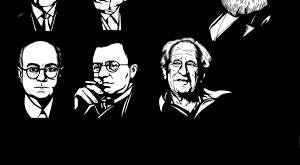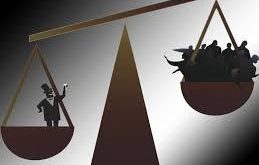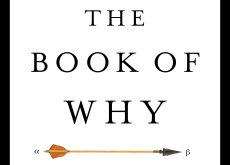Expected utility theory and ergodicity — poor guides to decision-making Behavioural scientists generally explore decision making using simple gambles with “additive dynamics.” In each gamble, a person wins or loses fixed amounts of money – say, gaining £1 for a win, and losing £0.50 for a loss. Gambles of this kind turn out to be “ergodic” in the sense that averages over the possible outcomes really are equal to averages over time if the gamble is played...
Read More »Wie konnten sie diesen Präsidenten wählen?
Wie konnten sie diesen Präsidenten wählen? Gregg Popovich sagt: “Der Mann im Oval Office ist ein seelenloser Feigling, der denkt, er könne groß werden, indem er andere erniedrigt.” Er sagt: “Wir haben einen pathologischen Lügner im Weißen Haus.” Er sagt auch: “Ich würde mich besser fühlen, wenn jemand dieses Amt bekleiden würde, der die Reife sowie das psychologische und emotionale Level gezeigt hat, das andere in seinem Alter haben.” Und: “Unser Land ist...
Read More »Econometric forecasting — no icing on the economist’s cake
It is clearly the case that experienced modellers could easily come up with significantly different models based on the same set of data thus undermining claims to researcher-independent objectivity. This has been demonstrated empirically by Magnus and Morgan (1999) who conducted an experiment in which an apprentice had to try to replicate the analysis of a dataset that might have been carried out by three different experts (Leamer, Sims, and Hendry) following their published...
Read More »Marxisme culturel — histoire d’une notion
Marxisme culturel — histoire d’une notion Cette expression connaît aussi un usage savant, surtout aux Etats-Unis. Dans ce cadre, il désigne un courant de pensée inspirée par l’œuvre de Karl Marx, qui fonde sa critique de la société non pas seulement sur une analyse des inégalités générées par le système de production économique, mais aussi sur l’aliénation qu’il engendre à travers la culture entendue au sens large – les arts, la publicité, la vie politique,...
Read More »Economics — a primary reason for the rise of inequality
Economics — a primary reason for the rise of inequality In 2004, the Nobel laureate Robert Lucas warned against any revival of efforts to reduce inequality. “Of the tendencies that are harmful to sound economics, the most seductive, and in my opinion the most poisonous, is to focus on questions of distribution.” Accounts of the rise of inequality often take a fatalistic view. The problem is described as a natural consequence of capitalism, or it is blamed...
Read More »Why attractive people you date tend to be jerks
Why attractive people you date tend to be jerks Have you ever noticed that, among the people you date, the attractive ones tend to be jerks? Instead of constructing elaborate psychosocial theories, consider a simpler explanation. Your choice of people to date depends on two factors, attractiveness and personality. You’ll take a chance on dating a mean attractive person or a nice unattractive person, and certainly a nice attractive person, but not a mean...
Read More »Richard Feynman — le grand explicateur
Richard Feynman — le grand explicateur [embedded content]
Read More »The Illusion of Certainty
The Illusion of Certainty [embedded content]
Read More »A day never to be forgotten (personal)
A day never to be forgotten (personal) Thirty years ago to the day. A newly wedded couple celebrating in front of the church where the act took place. People say time heals all wounds. I wish that was true. But some wounds never heal — you just learn to live with the scars. In memory of Kristina Syll — beloved wife and mother of David and Tora. [embedded content]
Read More »Dépendance au sentier
[embedded content]
Read More » Lars P. Syll
Lars P. Syll







